For the past 2 hours, I have been trying to debug a weird issue in devise which is not letting me login.
Here's the stuff I'm referring too:
password
=> 'vinodsobale'
password == 'vinodsobale'
=> true
resource.valid_password?(password)
=> false
resource.valid_password?('vinodsobale')
=> true
Attaching the screenshot as well:
 Note: I have enabled debugger inside devise so the above code is devise internal code.
Note: I have enabled debugger inside devise so the above code is devise internal code.
To me, it looks like a issue in Devise.secure_compare.